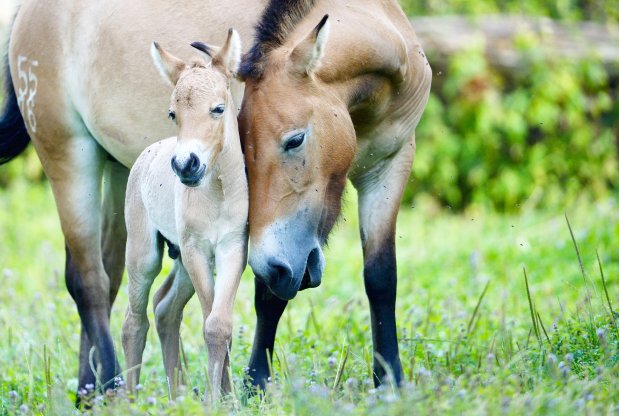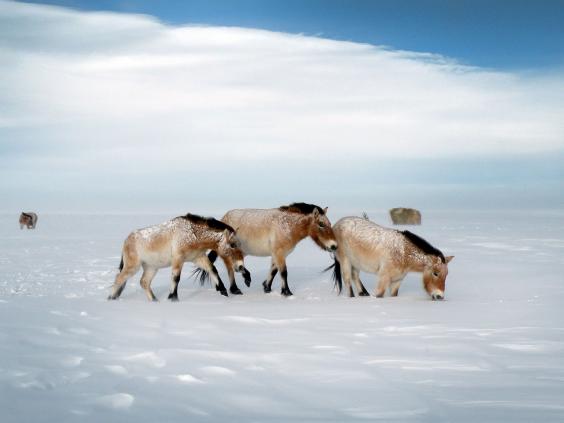What Are Exoplanets And How NASA Detects Life Beyond Our Solar System
Bharti Airtel Set To Acquire Telenor India Within This Year
Google Celebrates NASA’s Discovery Of Seven Earth-Like Planets With An Animated Doodle
Some Home Remedies That Might Sound Bizarre But Actually Work Like A Charm
Akshay Kumar Feels He Has Made Enough Money, Now Wants To Focus On Content & Characters
Delhi ATM Dispenses Fake Rs 2000 Notes From ‘Childrens Bank of India’ With ‘Churan Lable’
Adolf Hitler’s Personal Telephone During World War II Is Up For Auction In The US
From Salman Khan To Rekha, Neil Nitin Mukesh’s Wedding Reception Was Quite A Starry Affair
Once Declared Extinct, These Przewalski Horses Are Now Being Brought Back To Their Homes In Russia
If the world's only surviving wild horses had a say in the matter, they might opt for a cosy stable and fresh daily oats, scientists studying them joke. But the path out of oblivion for the species known as Przewalski's horse -- which only two decades ago was extinct in the wild -- lies in getting on a plane to China, Mongolia and, most recently, the Russian steppes with their deep snow and icy winds. Six animals born at a reserve in the south of France are now spending their first winter in Russia's flagship reintroduction project for the species. Eventually scientists hope to have 100 of the endangered animals on the site in the Orenburg Reserves, a cluster of six strictly protected nature areas along the border with Kazakhstan. The area spanning more than 16,500 hectares (40,770 acres) is "the largest unbroken, strictly protected plot of virgin steppe in Russia," safeguarded, ironically, by the fact that it belonged to the military for decades, said Przewalski's horse expert Tatjana Zharkikh, who heads the reintroduction project. Six Przewalski horses born at a reserve in the south of France are now spending their first winter in Russia's flagship reintroduction project for the species "They are quite happy," she said in an interview, despite the harsh climate in the region, with extreme snowfall which in January trapped several drivers on a local highway, leading to a man's death.
"Even a few hybrids can cancel out all conservation efforts," said Zharkikh. "What is the point of protection if they are just cute shaggy-haired horses rather than a species?" A wild population would only work if the protected area is much larger, she said, 100,000 hectares or even more, and if such a park is created in the future, it can be populated with Przewalski's horses from the project.
"Our goal is to form a reserve of genetically pure animals," said Rafilya Bakirova, director of Orenburg Reserves that hosts the project, dreaming of expanding the project and cross-border cooperation with Kazakhstan. "For now we just want to survive the winter," she said.
Although the species is considered a conservation success, Joly of the TAKH association in France conceded that it is becoming nearly impossible to find a place where Przewalski's horse can be truly wild. "Even sites that look wild like Russian or Mongolian steppes are not completely devoid of human activity," he said.
"It indeed shows that there are very few places with no human influence in the world."






